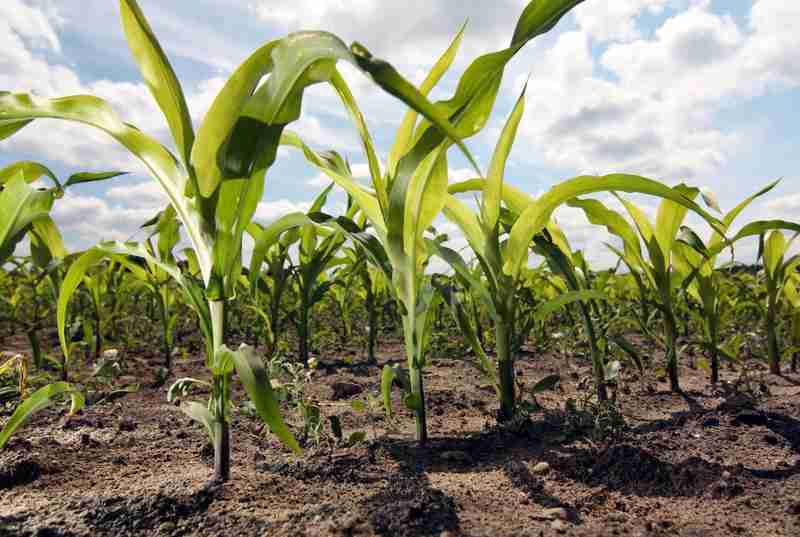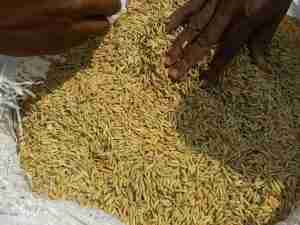Wellington Osawe, University of Ibadan & NAPP Scholar at MSU 2018
Agriculture has always been the mainstay of economies in Africa. The same is true of Nigeria. However, through the discovery of crude oil in the late 1960s, the contribution of the agricultural sector to Nigeria’s gross domestic product (GDP) nosedived from 67% in 1960 to 23.4% in 2008 (Falola and Haton, 2008, Yakub, 2008). These figures have been fluctuating over the years and currently, the estimated figure is about 21% as at 2017 (CBN, 2017). Arguably, it may be very difficult for Nigeria to achieve sustainable and inclusive economic growth without developing the agricultural sector. This is largely because almost 40% of the country’s population (as of 2015) was employed in one aspect of agriculture or the other across the value chain (MBNP, 2017). And this statistic is projected to increase with the renewed interest in government’s diversification agenda towards agriculture and related sectors. However, for Nigeria to sustainably develop the agricultural sector in such a way that is mutually beneficial to all – a sustainable source of income for producers, processors and marketers and as source of national food security and foreign exchange earner-, the sector must evolve beyond the current state to a business-oriented model.

Nigeria’s agricultural sector needs to be seen as a business and as such, the sector needs to operate within the models and principles guiding any business investment. One of such is the fact that, a business is set up to create, deliver and add value to any economic system within the limit of the prevailing economic policies. This is the framework behind agribusiness. It introduces a business model into the activities of farming, agricultural value addition, marketing and distribution of agricultural commodities. When agriculture is seen within the framework of agribusiness, support towards agriculture will not just be a waste of limited resources but a veritable source of investment. This is because, as the sector evolves within this business ecosystem, the government generates much needed revenue from the development and expansion that will ensue. Government subsidies in this regard will not just deplete the treasury but rather would serve to increase it. Within this framework also, business actors within the sector will have renewed incentive to upgrade production and processing technologies. This is one area that is lacking in Nigeria’s agricultural sector and one of the reasons youths are turning away from agriculture. With policies that support development of agriculture as a business, technology upgrade will be at the fore of those who will be investing in the sector. For example, with appropriate technology, an average rice farmer in Nigeria for instance can triple average yield on a hectare of farmland. This means more revenue and incentive to the farmer. Therefore, policies such as those geared towards supporting acquisition of credit and loans at very minimal interest rates to upgrade technologies would be key in this regard.
 Importantly, there is a need to support agricultural commodity value chain development in Nigeria. The need for value addition will has the potential to support industries and manufacturing. For example, Nigeria is recognized as the largest producer of cassava. Yet, much of the smallholder farmers who produce the bulk of the cassava in Nigeria do not add value to it. They just harvest and sell. But, with opportunity to add value and process the cassava tuber into other different exportable products, this may provide a potential to support industries, create new small and medium scale businesses and increase potential for foreign exchange generation. Indeed, it is no gainsaying that there is a dire need for a structural transformation of Nigeria’s agricultural sector beyond just the rhetoric of diversification. This transformation in my opinion will start when the government design and implement policies centered around providing the enabling policy and institutional environments to support and promote agribusiness in the country. Policies that increases the ease of doing business and acquiring funds will be of high importance. As a business entrepreneur, you would want to source for funds to get modern productive inputs to produce the best quality products that can rival your competitors. The same should be said of agriculture. Agribusiness actors should be able to source sufficient funds to upgrade their productive inputs such that their productivity is not only improved but the quality of the product can compete with the major brands in the market domestically and abroad. This is the way to go. Nigeria can have the next “Silicon Valley” in the agricultural sector with entrepreneurs pushing the limits to acquire the ever increasing market share.
Importantly, there is a need to support agricultural commodity value chain development in Nigeria. The need for value addition will has the potential to support industries and manufacturing. For example, Nigeria is recognized as the largest producer of cassava. Yet, much of the smallholder farmers who produce the bulk of the cassava in Nigeria do not add value to it. They just harvest and sell. But, with opportunity to add value and process the cassava tuber into other different exportable products, this may provide a potential to support industries, create new small and medium scale businesses and increase potential for foreign exchange generation. Indeed, it is no gainsaying that there is a dire need for a structural transformation of Nigeria’s agricultural sector beyond just the rhetoric of diversification. This transformation in my opinion will start when the government design and implement policies centered around providing the enabling policy and institutional environments to support and promote agribusiness in the country. Policies that increases the ease of doing business and acquiring funds will be of high importance. As a business entrepreneur, you would want to source for funds to get modern productive inputs to produce the best quality products that can rival your competitors. The same should be said of agriculture. Agribusiness actors should be able to source sufficient funds to upgrade their productive inputs such that their productivity is not only improved but the quality of the product can compete with the major brands in the market domestically and abroad. This is the way to go. Nigeria can have the next “Silicon Valley” in the agricultural sector with entrepreneurs pushing the limits to acquire the ever increasing market share.
As the current President of the African Development Bank (AfDB), Dr Akinwunmi Adesina stated, “Agriculture can pay. Hundreds of millions of small farmers, thousands of local agribusinesses, and hundreds of seed and food companies will make it pay, as long as the development community and governments are willing to try something new”. This “something new”, I believe, is approaching agriculture from the point of view of a business model and supporting this with the needed policy and institutional framework to making it work for the benefits of all.
Reference
Cental Bank of Nigeria, CBN (2017) Statistical Bulletin: Domestic Production, Consumption and Prices. Available at https://www.cbn.gov.ng/documents/Statbulletin.asp and accessed on 17/10/2018
Falola, T. & Heaton, M. (2008). A History of Nigeria. New York: Cambrige University Press. pp 183.
Ministry of Budget and National Planning, MBNP (2017) Economic Recovery and Growth Plan 2017-2020. Ministry of Budget and National Planning, Federal Republic of Nigeria. Available at https://yourbudgit.com/wp-content/uploads/2017/03/Economic-Recovery-Growth-Plan-2017-2020.pdf
Yakub, M. (2008). The Impact of Oil on Nigeria's Economy: The Boom and Bust Cycles. Central Bank of Nigeria Bulletin, 32 (2), 41-50.

